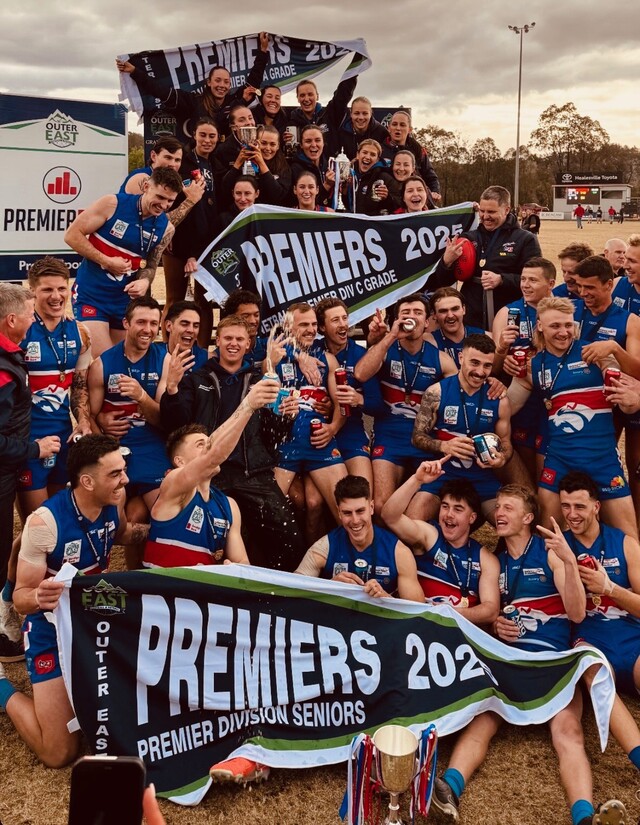BUXTON volunteer firefighter and paramedic Mark Somers drove back into the town of about 450 people about 1am on Sunday 8 February expecting devastation.
Having driven through Narbethong he had good reason to expect the worst.
A 1st Lieutenant with the Buxton Fire Brigade, Mr Somers was leading a 40 strong strike team of CFA volunteers from several north-east brigades who had been sent to the Gippsland fires on the previous Friday.
By late Saturday, with all hell breaking loose in their own backyards, the team was making a lights and sirens dash through the Bunyip fires, across to Healesville and up the smoke-filled Black Spur.
Mr Somers said his reaction as the team drove into Narbethong about midnight was one of total disbelief.
Surrounded by burning bush and buildings, Mr Somers reported on the devastation to the Alexandra incident control centre and was given a list of addresses to check where there had been reports of people trapped.
“We went to the addresses given and where the houses were gone, we just moved on to the next house,” said Mr Somers.
The petrol station on the edge of Buxton was burning as the convoy of vehicles made its way into the township but with the power cut and the town in darkness, Mr Somers said it was hard to judge the extent of the damage.
The fire had come down off the Black Range and into the valley and the Cathedral Ranges some time around 7pm, skirting the populated township area but wreaking havoc on outlying rural properties.
“We noticed major buildings were still standing… the hotel, the general store, the school and the Igloo Road House,” he said.
“The fire station was still there but the trucks were out.”
Looking over towards the Cathedral Ranges, he said he noticed a red glow. He assumed his own house was gone but said his focus was on getting the strike team through to Yea.
It wasn’t until he arrived back in Buxton about 4am that he discovered that his house had, in fact, survived – something he puts down to “sheer bloody good luck”.
He lost outbuildings and vehicles but arrived home in time to extinguish the fires burning, by that time, within a metre of his house.
Others were not so fortunate. Eighty-four houses in the brigade area were destroyed along with many sheds, kilometres of fences, pasture and bushland.
As Mr Somers was racing back to Buxton, the brigade’s 2nd Lieutenant, Peter Cureton, and his wife, Willy, also a CFA volunteer, were among the hundreds of Buxton district residents fighting through the night to save their homes.
“Other people were doing the same thing we were. We didn’t get to hear of all this until later,” said Mr Cureton, who had been on the fire front earlier in the day at Murrindindi.
Mr Cureton and four other Buxton brigade members had been on their way to Wandong as part of the strike team earlier in the day when they were sent back to fight the blaze which had just broken out at Murrindindi.
“The fire was well and truly away when we got there,” he said.
“We were putting it out in grassland with another strike team but when it got into the bush it was too dangerous to go in,” he said.
By that time Mr Cureton said he and the rest of the crew were hearing reports on the truck radio of the fires moving through St Fillans, Narbethong, Tarnpir and Granton.
“That was before the wind change and we knew for sure that Buxton was going to be in for it.
“We were pretty keen to get home,” he said.
Mr Cureton had been a firefighter for more than 40 years. He moved from western Victoria to Buxton just three years ago.
With his wife at home by herself, he said he didn’t hesitate when Buxton Captain Stan Larner gave the go ahead for his members to return home to defend their properties.
Mr Larner has been with Buxton Fire Brigade for 44 years and has played his part in a number of big fires, but none, he said, like Black Saturday.
“You could see what was happening… that it was something extraordinary,” he said.
Like many of the bushfire devastated areas, Buxton was plagued with communication and other problems. Mr Larner said they lost their water, power and phone supplies.
“We only knew about the fire (Narbethong/Marysville) because we were getting calls through from Narbethong but even then we couldn’t get through because the road was blocked,” he said.
Mr Larner said Buxton has been fortunate in the past to have escaped the big fires – perhaps because of sheer luck, perhaps because of its geographical location.
“This is the first time Buxton has had a big fire since 1939,” he said.
“The Ash Wednesday fires (1983) came through to Marysville from Warburton but the big fires have always stopped before they got to Buxton which is a wetter area.”
This time, Buxton didn’t escape unscathed but it could have been much worse, according to Mr Larner.
“We were lucky the fire came through at an angle through a lot of pasture land,” he said.
“If it had come through from the north it would have had a far greater impact.”
Siren dash to disbelief
Digital Editions
-

Bike park opening a highlight of Star Mail’s sports coverage
2025 was a big year for mountain bikers with the Warburton Bike Park opening on Saturday 19 July. Over the opening weekend a total of…





